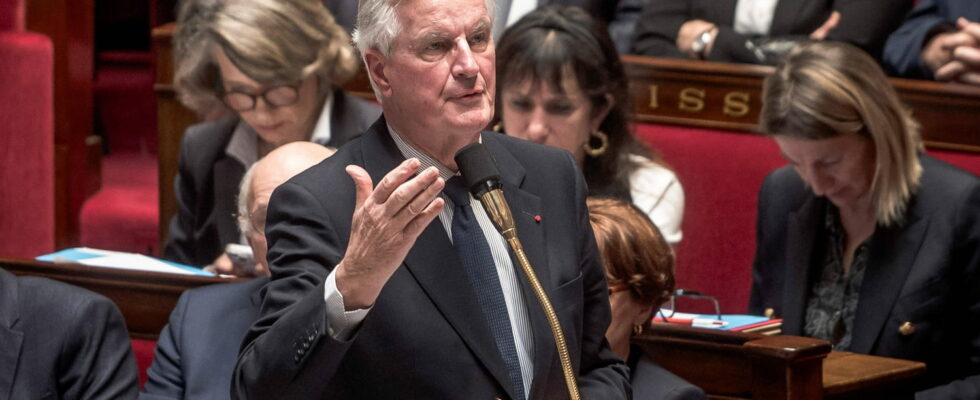MPs have decided to increase a new tax paid by thousands of French people.
The series is far from over. After the presentation of the various tax increases by Michel Barnier, it is now the deputies who are working on the subject, with the freedom to propose adjustments as they see fit. Several additional increases were submitted and one of them obtained a first green light from the Parliamentarians elected at the Bourbon Palace. And it should make thousands of French people cringe.
Since 2018, it is possible that money earned through capital gains on life insurance, PEL, retirement savings or company dividends will only be taxed at 30%. A rate that is too low in the eyes of many deputies who have been trying, for several years, to increase it. This year, taking into account the new organization of the National Assembly, a proposal to increase the rate of this single flat-rate levy (PFU) to 33% was formulated and adopted. This could bring an additional 800 million euros into state coffers.
However, this increase was only adopted in the Finance Committee. It must now be integrated by the government into the final text and also adopted by deputies and senators. However, Michel Barnier and his teams still have plenty of time to ignore this proposal since they could pass the overall text in force, with 49.3. Unless the Assembly votes for censure.
Furthermore, an increase in VAT on electricity is planned, as well as on the internal tax on final electricity consumption. Among the other measures, that of an exceptional tax on 65,000 fortunes which earn more than 250,000 euros per year, that of an “exceptional participation”, for two years, of large companies on the profits which “make a billion turnover or more” (440 groups concerned), but also an increase in taxation on polluting transport, as well as a change in taxation for AirBnb rental.
Obviously, these are only the directions desired by the government. The bill will be debated in the National Assembly between October 21 and 25, followed by a vote on Tuesday 29, then the Senate will take its turn. Between the debates and the amendments, there is no doubt that the 2025 budget could still be largely modified.
Latest updates
16:00 – MEPs increase tax on dividends
During the discussions on the amendments, the deputies adopted one of the numerous texts tabled which concerns the increase in a tax. Elected officials voted in favor of an increase in the single flat-rate levy (PFU) from 30 to 33%. This is a tax applied to capital gains from life insurance, PEL, retirement savings or company dividends. Concretely, for 1000 euros of dividends received, you had to pay 300 euros in taxes in 2024. In 2025, it could be 333 euros. Could because, at this stage, the text is not included in the law. It will be put to the vote of all MPs again next week.
15:26 – Higher “notary fees”?
When purchasing real estate, various fees are paid in addition to the price of the property. These are paid to the notary but, in reality, a part is paid to various organizations, including the Department. Today, these communities can apply a rate between 3.8 and 4.5%. The communist deputies propose that they could go up to a rate of 5%, which would mechanically increase the bill for a real estate purchase.
16/10/24 – 06:23 – When will MPs vote on the tax increase?
At this stage, announcements of tax increases are only planned. Debates in the National Assembly will begin on Monday October 21. The deputies will work until Friday 25 on the “revenue” part, therefore the question of tax increases. They should vote on Tuesday 29 to validate or not the measures. Then, the question of spending, and therefore the savings also promised by the government, will be studied from Tuesday November 5.
10/15/24 – 9:14 p.m. – What happened to the main old “temporary” taxes?
“Temporary” taxes are not the first time that a government has sought to implement them. This formula has already been used in the past. And the temporary nature quickly transformed into permanent. This is particularly the case of the Contribution for the repayment of social debt (CRDS), a tax levied on all income to reduce social security debt. Faced with the organization’s gaping financial hole, it is postponed until 2033… or 2042! That’s not all. The exceptional contribution on high incomes (CEHR), paid from 250,000 euros declared for taxes (or 500,000 as a couple), was to last until 2017, the year when the public deficit was to be “zero”. Suffice to say that it is not ready to disappear.
10/15/24 – 6:22 p.m. – Will MPs vote in favor of raising taxes?
This is the whole question since the result of the legislative elections. Split into three large blocs, the National Assembly is more divided than ever. So, what about the 2025 budget? Not having the support of 289 deputies (absolute majority), the government risks coming up against opposition from the NFP and the RN. However, he has a weapon to pass the budget in force: the famous article 49.3 of the Constitution. If this is used, a motion of censure can then be passed. If it is adopted (289 votes minimum), the government is overthrown and everything starts from scratch. If it is not adopted, the text then enters into force because this means that a majority of deputies did not oppose the government. What will the scenario be? The fog is still thick: will the NFP and the RN join forces? This is the whole question for the weeks to come. If the NFP has already expressed its opposition to the government, the RN has announced that it will not censor “on principle”. The fact remains that the party remains silent on Michel Barnier’s tax increase project.
